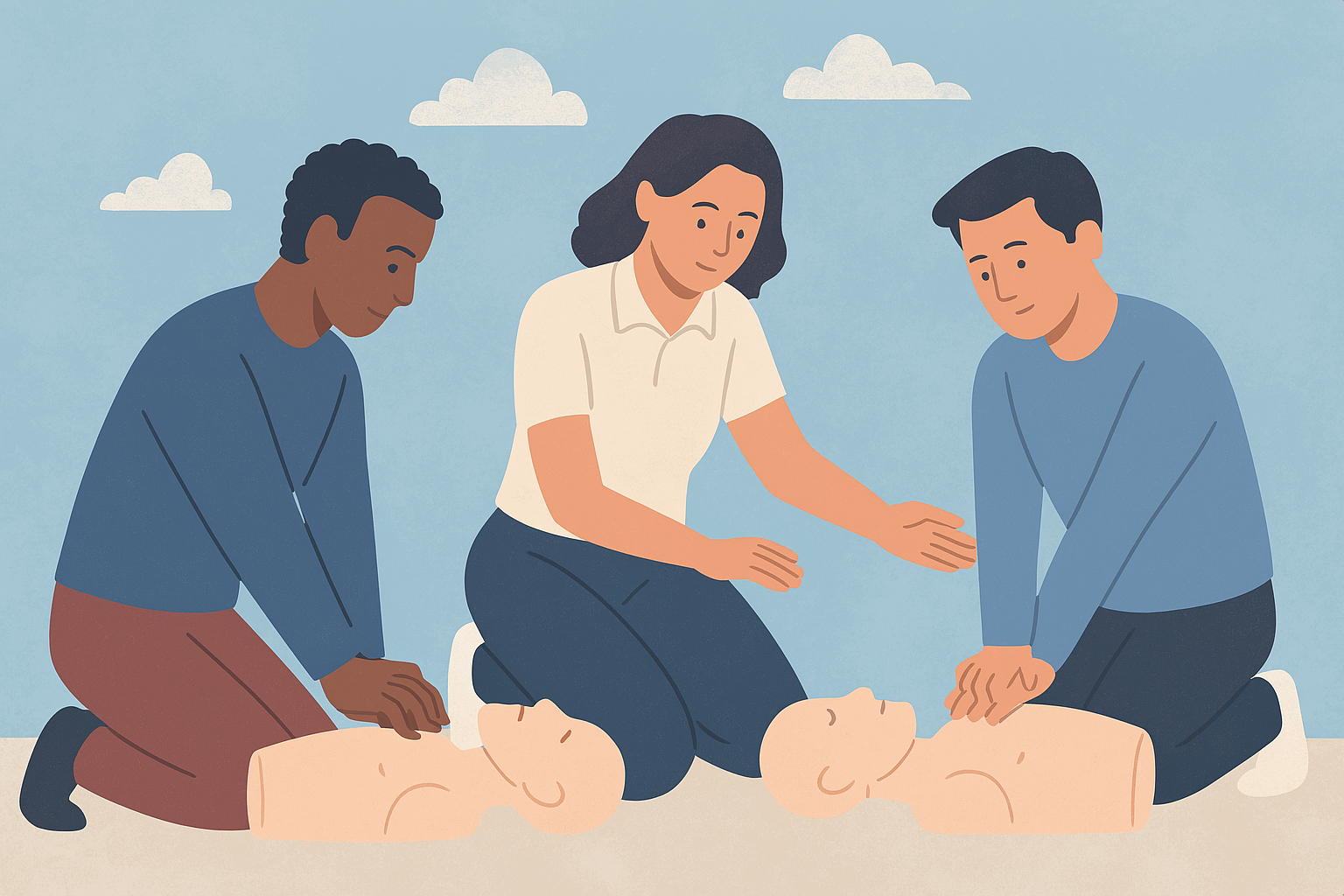In the heart of the Midwest, where neighbors help neighbors and community ties run deep, staying prepared for emergencies is more than just a personal responsibility — it’s part of what makes Omaha strong. Whether you’re tailgating at a Huskers game, enjoying a family picnic at Zorinsky Lake, or just grabbing lunch at the Old Market, the unexpected can happen. That’s where CPR training — and more importantly, regular re-certification — comes into play.
Why CPR Still Matters
While emergency services in Omaha are top-notch, even the fastest response times can’t always beat the clock when someone’s heart stops. Immediate CPR can double or even triple a cardiac arrest victim’s chance of survival. With over 356,000 out-of-hospital cardiac arrests happening each year in the U.S., having more Omaha residents trained — and current — in CPR can literally mean the difference between life and death.
The Re-Certification Gap
Many people complete a CPR course once and assume they’re set for life. But like many skills, CPR is perishable. Studies show that skills begin to decline as early as 3 to 6 months after training. If your last class was during the College World Series of 2022, it’s time to re-up.
National certifying bodies require re-certification every two years, and there’s a good reason for that. Not only do protocols evolve with new medical research, but staying fresh also keeps your skills sharp and your confidence high in a real emergency.
Scenarios Where CPR Can Save Lives
Let’s bring it home. Think about:
- Heartland of America Park: You’re enjoying a walk when someone collapses on the path.
- Westroads Mall: A shopper suffers a cardiac arrest near the food court.
- Henry Doorly Zoo: A child chokes near the aquarium and stops breathing.
In every one of these scenarios, a bystander with up-to-date CPR training could be the hero. The more certified individuals Omaha has, the more prepared we are as a community.
What’s New in CPR Since You Last Certified?
If it’s been a while since your last class, here are just a few things you might’ve missed:
- Updated compression-to-breath ratios
- Hands-only CPR recommendations
- Emphasis on high-quality, uninterrupted chest compressions
- New AED technology and usage guidelines
Re-certification classes are also more accessible than ever — with hybrid online/in-person options, shorter refresher courses, and even employer-sponsored sessions across Omaha.
Be sure to reach out to us today to schedule a CPR class for your organization today!

